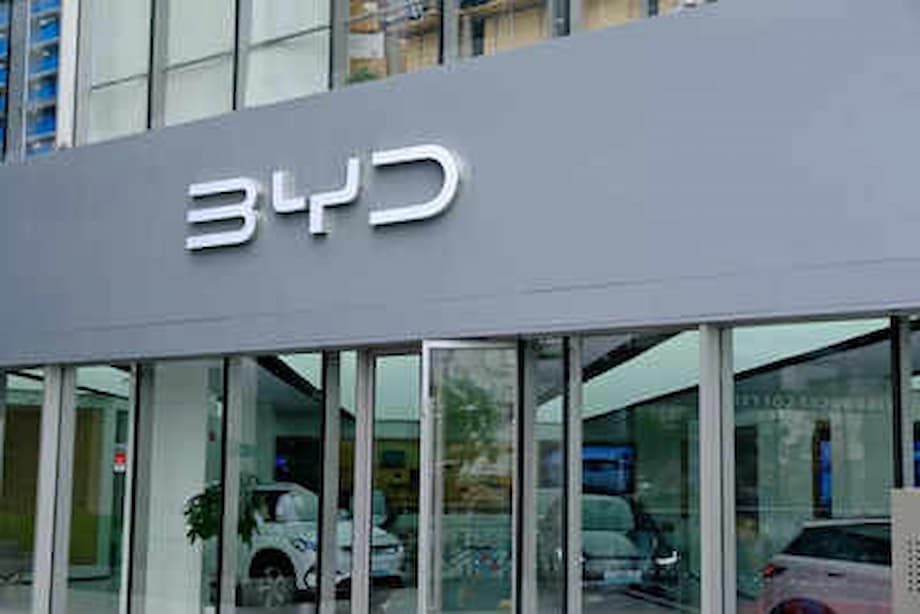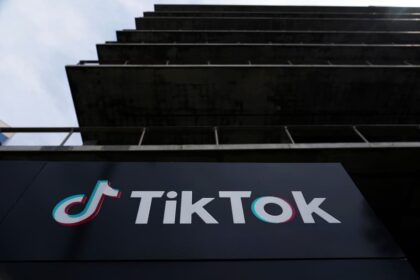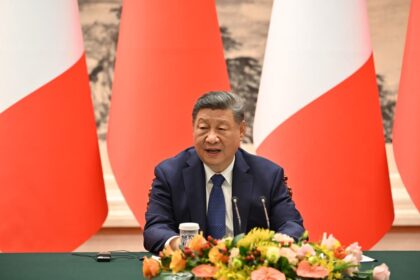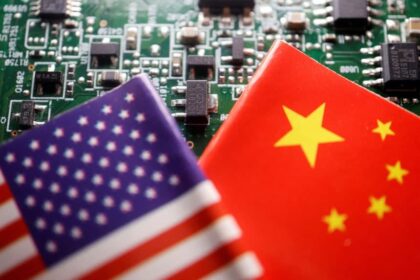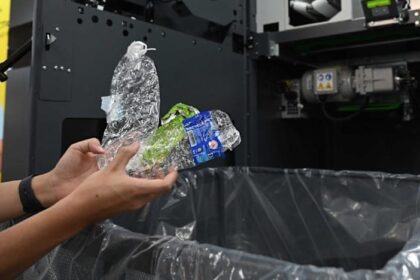BYD’s Entry into Pakistan: A Landmark for the Auto Sector
Chinese electric vehicle (EV) giant BYD is set to transform Pakistan’s automotive landscape by launching its first locally assembled car by July or August 2026. This move, in partnership with Mega Motor Company (a subsidiary of Hub Power Company, Pakistan’s largest independent power producer), marks a significant milestone in the country’s transition toward electric mobility and sustainable transportation. The new assembly plant, under construction since April 2025 near Port Qasim in Karachi, will initially have an annual production capacity of 25,000 units operating on a double-shift basis. BYD’s entry is not just about selling cars—it’s about catalyzing a broader shift in Pakistan’s industrial, environmental, and economic trajectory.
- BYD’s Entry into Pakistan: A Landmark for the Auto Sector
- Why Pakistan? The Strategic Rationale Behind BYD’s Expansion
- Inside the Karachi Plant: Production Plans and Local Partnerships
- Market Impact: Disrupting the Status Quo
- Plug-in Hybrids: A Practical Solution for Pakistan’s Market
- Challenges Ahead: Infrastructure, Awareness, and Affordability
- Broader Implications: Industrial, Environmental, and Geopolitical
- What’s Next? The Road Ahead for BYD and Pakistan’s EV Market
- In Summary
Why Pakistan? The Strategic Rationale Behind BYD’s Expansion
BYD’s decision to invest in Pakistan is driven by several converging factors. First, Pakistan’s automotive market is ripe for disruption. For decades, Japanese and local brands have dominated, but recent years have seen a surge in demand for alternative-energy vehicles, especially as the country grapples with economic challenges and climate change. The Pakistani government’s National Electric Vehicle Policy aims for 30% of all new vehicle sales to be electric by 2030, offering incentives such as reduced import duties, tax breaks, and green financing. This policy environment, combined with a young, urbanizing population and growing environmental awareness, makes Pakistan an attractive destination for global EV makers.
Second, BYD’s global strategy is to diversify its manufacturing footprint and reduce costs through localized production. By assembling vehicles in Pakistan, BYD can mitigate import tariffs, lower logistics expenses, and offer more competitive pricing to consumers. The Karachi facility is BYD’s first major investment in South Asia and could serve as a base for exports to right-hand-drive markets like Sri Lanka, Bangladesh, and parts of Africa, depending on freight costs and market dynamics.
Inside the Karachi Plant: Production Plans and Local Partnerships
The new assembly facility near Port Qasim is strategically located close to other major automakers such as Toyota, Suzuki, and Kia. Initially, the plant will assemble semi-knocked-down kits imported from China, while non-electric components will be sourced locally. Over time, BYD plans to increase localization, fostering technology transfer and boosting local employment. The partnership with Mega Motor Company leverages local expertise for production and distribution, while BYD provides technical support and supply-chain integration.
According to Danish Khaliq, BYD Pakistan’s Vice President of Sales & Strategy, the company aims to introduce both battery electric vehicles (BEVs) and plug-in hybrid electric vehicles (PHEVs), with a particular focus on models suited to Pakistan’s infrastructure and consumer preferences. The initial lineup will include the all-electric Atto 3, the Seal EV, and the hybrid Sealion 6. BYD will also launch the Shark 6 plug-in hybrid pickup truck, targeting the country’s strong demand for utility vehicles.
Meeting Local Demand and Export Potential
All vehicles produced in the initial phase will serve Pakistan’s domestic market. However, if market conditions and freight economics are favorable, BYD may export right-hand-drive models to neighboring countries. This export potential aligns with Pakistan’s ambitions to become a regional manufacturing hub for EVs, supported by government plans to establish dedicated EV production zones and manufacturing facilities across the country.
Market Impact: Disrupting the Status Quo
BYD’s entry is already shaking up Pakistan’s auto sector. Over the past year, more than half a dozen car brands—especially Chinese automakers—have entered the EV market, challenging the dominance of established players like Toyota. Passenger car sales in Pakistan rose by 17% and truck sales by 67% last year, driven largely by Chinese EV imports. BYD’s imported models, introduced in March 2025, have exceeded internal sales targets by 30%, signaling strong consumer interest despite the nascent state of the market.
The company is targeting a 30-35% share of Pakistan’s EV and plug-in hybrid segment, which is expected to grow three to four times in 2025 from about 1,000 units in 2024. This ambitious goal reflects both BYD’s confidence in the market and the broader trend of Chinese EV makers seeking new growth opportunities amid slowing sales and fierce price competition in China.
Government Incentives and Infrastructure Development
To accelerate EV adoption, the Pakistani government has introduced several incentives:
- Reduced customs duties on EVs and parts
- Lower electricity tariffs for EV charging stations (a 45% reduction)
- Encouragement for private operators to establish charging points in key cities and along major highways
- Green financing and tax breaks for manufacturers and consumers
These measures are designed to address the main barriers to EV adoption: high upfront costs and limited charging infrastructure. BYD and its partners are responding by planning a network of fast-charging stations in major urban centers and along transport corridors, in collaboration with oil companies and energy providers.
Plug-in Hybrids: A Practical Solution for Pakistan’s Market
While fully electric vehicles are the ultimate goal for a zero-emission future, plug-in hybrids (PHEVs) are seen as a more practical solution for Pakistan in the short term. The country’s public charging infrastructure is still in its infancy, and electricity supply can be inconsistent due to grid challenges. PHEVs offer the flexibility of running on both electricity and conventional fuel, making them attractive to consumers who want to reduce fuel costs and emissions without worrying about range anxiety.
BYD’s Shark 6 plug-in hybrid pickup truck is expected to be among the first locally assembled models, catering to Pakistan’s preference for commercial and multi-purpose vehicles. Other Chinese brands, such as MG and Haval, are also entering the PHEV segment, intensifying competition and expanding consumer choice.
Challenges Ahead: Infrastructure, Awareness, and Affordability
Despite the promising outlook, BYD and other EV makers face several challenges in Pakistan:
- Charging Infrastructure: The lack of widespread, reliable charging stations remains a major hurdle. While government and private sector initiatives are underway, scaling up infrastructure will require significant investment and coordination.
- Consumer Awareness: Many Pakistani consumers are still unfamiliar with EV technologies, their benefits, and maintenance requirements. Building trust will require robust after-sales service, education campaigns, and demonstration projects.
- Affordability: Although Chinese EVs are generally more affordable than Western or Japanese models, the upfront cost is still high for the average Pakistani buyer. Expanding access will depend on targeted financing, subsidies, and continued reductions in import duties.
- Power Supply: Pakistan has surplus power generation capacity, but periodic shortages and grid instability can undermine confidence in electric mobility. Ensuring a stable, clean energy supply for charging stations is essential.
- Local Supply Chain: Developing a reliable local supply chain for parts and components will take time. BYD’s gradual approach—starting with imported kits and increasing localization—reflects this reality.
Broader Implications: Industrial, Environmental, and Geopolitical
BYD’s investment in Pakistan is more than a business expansion—it has far-reaching implications for the country and the region. Industrially, it promises to create jobs, foster technology transfer, and stimulate the growth of ancillary industries. Environmentally, it supports Pakistan’s climate commitments to reduce emissions and promote clean energy. Geopolitically, it strengthens economic ties between China and Pakistan, aligning with China’s broader Belt and Road Initiative and its push to export green technology.
Pakistan’s auto market could become a model for other emerging economies seeking to leapfrog to cleaner, more sustainable transportation systems. If successful, BYD’s Karachi plant could pave the way for Pakistan to become a regional hub for EV manufacturing and exports, especially as global demand for affordable, right-hand-drive EVs grows.
What’s Next? The Road Ahead for BYD and Pakistan’s EV Market
BYD’s first locally assembled vehicles are expected to roll off the production line by mid-2026, with a focus on plug-in hybrids and electric SUVs tailored to local needs. The company’s strategy of combining global expertise with local partnerships positions it well to capture a significant share of Pakistan’s fast-growing EV market. However, success will depend on overcoming infrastructure challenges, maintaining policy support, and winning consumer trust.
As Pakistan moves toward its goal of 30% electric vehicle sales by 2030, the coming years will be critical. The collaboration between BYD, Mega Motor Company, and the Pakistani government could serve as a blueprint for other countries in the region. For now, all eyes are on Karachi, where the future of Pakistan’s auto industry is taking shape—one electric vehicle at a time.
In Summary
- BYD will begin assembling electric and plug-in hybrid vehicles in Pakistan by July or August 2026, in partnership with Mega Motor Company.
- The new plant near Karachi will have an initial capacity of 25,000 units per year, focusing first on the domestic market with potential for exports.
- BYD aims to capture a 30-35% share of Pakistan’s EV and plug-in hybrid segment, which is expected to grow rapidly in the next few years.
- The Pakistani government is supporting EV adoption through incentives such as reduced import duties and lower electricity tariffs for charging stations.
- Plug-in hybrids are seen as a practical solution for Pakistan’s current infrastructure, with the Shark 6 pickup truck among the first local models.
- Challenges remain, including limited charging infrastructure, consumer awareness, and affordability, but BYD’s investment signals confidence in Pakistan’s long-term EV potential.
- The project has broader industrial, environmental, and geopolitical implications, potentially positioning Pakistan as a regional hub for EV manufacturing and exports.


